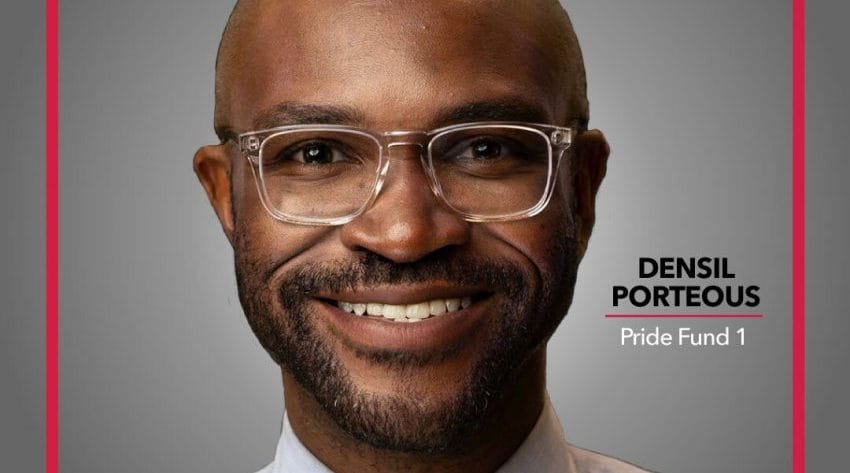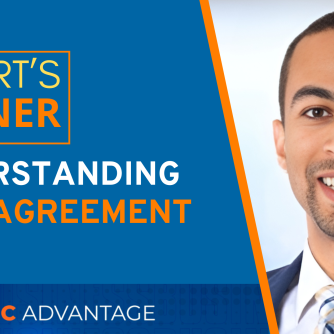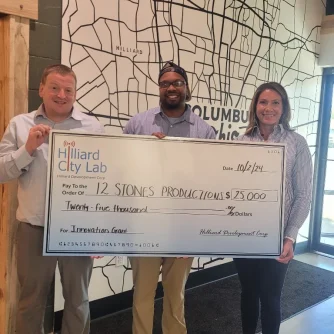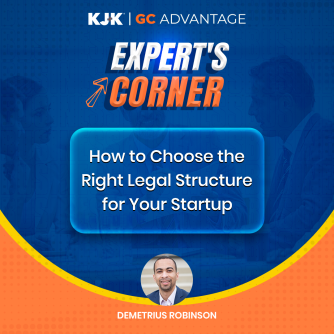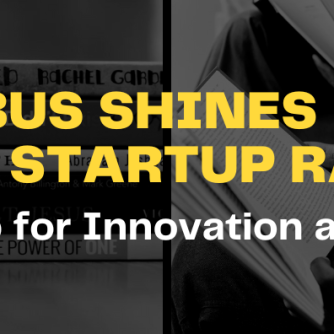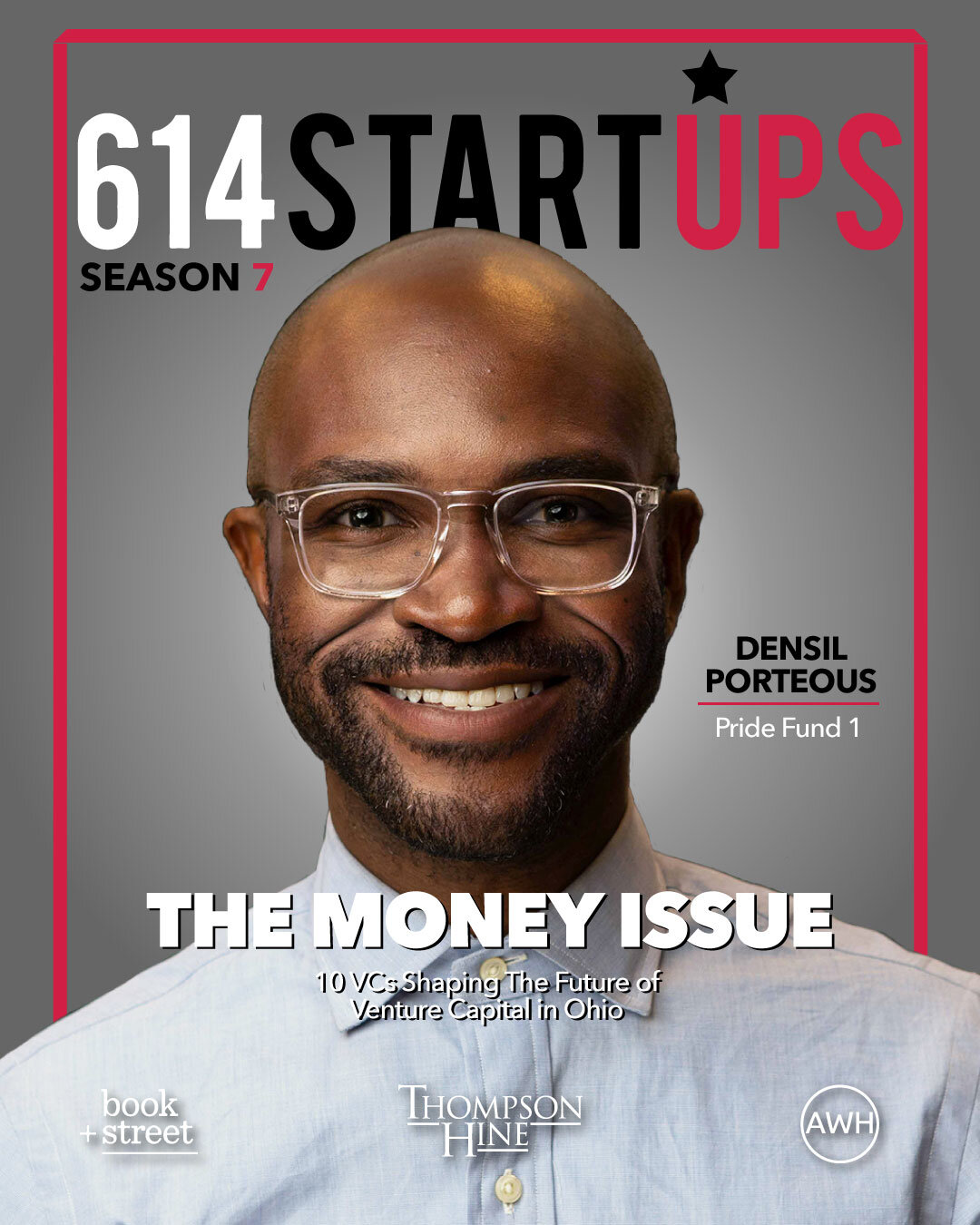
Elio: [00:02] This episode is brought to you by our friends at Book + Street. Book + Street provides finance and accounting solutions for startups in the Midwest and beyond. From strategic financial support to bookkeeping, and everything in between, they’ve got your back office covered. Let their experienced team of finance and accounting professionals help your startup get it right, right from the start. Learn more at bookandstreet.com and set up your free 30-minute consultation with their team today.
[00:34] 614Startups Nation, welcome to another episode of the 614Startups podcast. My name is Elio Harmon, your host and I have a very special guest. As you guys know, this is season seven The Money Issue: 10 VCs Shaping the Future of Venture Capital in the state of Ohio and I have a great guest. I’ve only spoken to this gentleman on one other occasion, so I know there’s a lot of things we’re going to get into on this podcast. A lot of that stuff is going to be as new for me as it’s going to be for you. My guest today is Densil Porteous of Pride Fund 1. Densil, welcome my brother.
Densil: [01:06] Oh, I’m so glad to be here. Thank you for having me. I’m excited to chat a little bit. And yeah, I think maybe there will be some things you uncover about me that we haven’t talked about before, but hopefully nothing surprising or out of the ordinary.
Elio: [01:18] Come on, man. You know, I’m Oprah. I might make you cry today.
Densil: [01:22] Now that could happen. I’ll give it to you.
Elio: [01:24] All right, cool. I appreciate your willingness to be open. We start every podcast with a bit of a personal, so [would] love to hear some of your background.
Densil: [01:33] Yeah. So wow, I mean, I think my story is one of a true intersectional identity. I was originally born in Jamaica, West Indies so I’m first-generation American. I came to the States when I was fairly young. I grew up in a single-parent home with three older sisters. My mom passed away when I was 14. I lived in Brooklyn, Queens and Long Island during that time. After she passed away, I moved to Georgia with my family, sort of the center of black Mecca in the United States these days. I think people continue to think about Atlanta being that sort of hotbed for that. So it was a pleasure to move down to Atlanta and sort of have a new experience of living outside of Brooklyn, Queens and Long Island.
[02:12] I went to college in Gambier, Ohio at Kenyon College, which is not close to Atlanta in any way, shape, or form; a very far throw from Jamaica and even further from New York City, quite honestly, which is funny. But it was a great experience to spend four years there of my undergraduate career learning and growing a Kenyon. I loved it so much I stuck around for four years after that and worked in the admissions office and got bitten by the higher education bug, I think I would say. Being able to connect community and people to a place and space that helps them grow and become full, I think is what I really loved about the admissions work that I was doing. And I continued that work. As a first-generation college student, it was important for me to identify others who maybe come from similar spaces and backgrounds, who didn’t understand or weren’t aware of what education could do for them in terms of opening new doors of possibilities potentially, and the vast networks of relationships that would come out of exploring higher education opportunities.
[03:08] So I did that for a number of years and love that and really appreciated it. I think being first-generation, meaning my mom didn’t actually graduate from high school, she got her GED while I was growing up in New York. And she never went to college so sort of that foundational experience of higher ed is something that I can’t trade and that I’m extremely thankful for.
[03:31] After that, I left the state of Ohio, went out to San Francisco for a couple of years, and really, I think got bitten by the startup tech and venture bug there. Living in the Bay Area, it’s sort of everywhere you turn, you can’t run away from it. But while I was there, I also really did a lot of nonprofit engagement and community service work, really true to my foundational understanding and being thankful for those who gave to me, to help me get to the places that I was. Again, first generation in America, became a citizen in 2018. As a gay black man, growing up in this country, there are so many things that I’m thankful for, for people who helped push me and resources that I got to be in the place that I am today.
[04:15] So I currently am back here in Ohio. I’ve been here since 2013, 2014, depending on who you talk to, and I’m loving being back here. It’s been great to come back to Columbus and help this city grow. I was intentional about coming back to Columbus to help create Columbus in many new and different ways. The community here is phenomenal. The people coming to be a part of this area is exciting. And I wanted to come back and be a part of that growth and that change and also give back to the community that helped me figure out and find my own identity during some really formative years. I’m pleased to be back here and leading organizations and helping connect community and resources to each other, and then also just developing in my own personal life. I’m a foster parent, and I just became an actual dad. So I adopted my foster daughter about two weeks ago now. She’s been with us for two and a half years but that’s a new layer of identity. Probably the most important job that I think I’m taking on in my life is being a parent, and I’m excited about that, helping to raise someone and think about their future. I think it’s really reflective of a lot of the things that I’m doing right now, in terms of the work in space that I do, to ensure that people can bring their full selves and identity to their work, to their lives. So, yeah, that’s a little bit about me in a nutshell, in terms of where I’ve been and how I got here and why I’m sitting in this seat, maybe a little bit. But yeah, that’s all of it.
Elio: [05:32] I love the immigrant story. I was originally born in Liberia, West Africa, immigrated to the States. When you said Jamaica, automatically I thought New York, right. It’s not Jamaica to Columbus, Ohio. You had to make a stop before that.
Densil: [05:45] Yes. Always, always. I mean, maybe it’s changing, I don’t know. But yeah, Jamaicans went, and always stopped in New York before going anywhere else. At least they did back in the 80s. Maybe they don’t do that anymore but who knows.
Elio: [06:00] Yeah, you get settled, maybe you stay with some family for a little bit, then you get on your own feet, that whole process of being an immigrant coming to the US, so I love it. I also spent some time in Georgia as well and then before returning to Columbus, Ohio, which feels for me like home, right? It is kind of you do your thing, you’re young, you can move around a little bit, but Ohio has always felt like home, so I understand why you’ve settled here. Now, even though I hadn’t known you before kind of inviting you to get on the podcast, one of the things– You know, you kind of have a rep out there, not you, but we all do, right? Even if somebody doesn’t know you. And there are usually words that you associate with people because of how you see them moving in the community. And for me, one of the things about you was always a connector. I felt like you were always somebody who found that it was important to be connected with people, and it was always about service for you. Where do you think that desire to both connect and to serve come from? And I’m going to talk about maybe a formative experience working. Did you work at Equitas?
Densil: [07:10] I was on the board.
Elio: [07:11] On the board.
Densil: [07:12] I was the Vice Chair of the Board. Yeah.
Elio: [07:13] Yeah. I want to know what that experience was like for you working or being a part of that board and some formative experience around connecting and serving.
Densil: [07:23] Yeah, it’s interesting because I think connection is innate in human DNA, right? We have a desire to connect, we have a desire to find our community, our people, our kinfolk, our whatever you want to call it. And I think we don’t often always want to accept that. I think we have this strong desire to be independent, individuals for the most part. A lot of us do. Our parents grow up and say, “You can do it on your own, be yourself, be your individual,” but I think deep down, we understand that there is importance in finding community and creating connection. It helps develop notions of resiliency and strength and motivation and all of these things that I think are essential for us as humans to really fully develop.
[08:06] I was a psychology student in college, or at least I started out there, and I think we talked about self-actualization and correction and all these things, and I think connection to community and identity is central to that. So I don’t know where that’s always come from for me, but it’s a through line for me. I understand that we are better with others, and not necessarily that we are better because of others, but we are better with others. So when we can see similarity in other people, then we feel empowered to be ourselves, when we see difference in other people, then we are empowered to find out more and seek and understand a connection between those differences. And so, for me, it’s always just been central to who I am.
[08:48] I think there’s an ultimate goal of happiness that’s connected to that as well. I think we all ultimately want to be happy, whatever happiness is for each individual person. I don’t know what that is. I know what makes me happy. I know there are things that probably make you happy and so forth. But I think for me, in order for us to find happiness, we have to help people find connection to get to the place of happiness, whatever that is. So if you need help understanding or how to self-actualize or correct yourself, then I want to help you find a connection to that. If you need help finding resources for your company or your event, then I want to be able to figure out how I can help you connect to that. Because ultimately, at the center of that is all about being happy, whatever that is.
[09:30] And of course, I want people to be happy as long as it’s not at the sake of hurting someone else. So if your personal happiness means detriment to someone else, then I don’t want to be a part of that. And I don’t know how I sort of ended up into these spaces and places of service, but I think that our lives are service. I think our lives are service to others. There’s service to self, but I think ultimately, it’s service to others. Our responsibility as humans is to ensure that we leave this place better than we found it or better than we came into it, whatever language you want to use. And so if that is through service, then that’s what I’m doing. My ultimate hope and desire as a human is that I’m able to help people through providing whatever I can in support to help them be happy, to find connection. And so I’ve just been lucky to fall into these places.
[10:16] I think what I have found, though, is that the places that sort of come to the forefront for me, have been parts of communities that intersect directly with my personal identity, which I think happens for people. Again, connection, community understanding of self, you realize that the spaces and places that you can oftentimes give the best service are the places and spaces that helped develop you as a person. So when I find that I’m connected to nonprofits, and in the work that I do, professional work outside of nonprofit service work, it always has seemed to come back to this place of identity and personal connection. So the board work that I do, sitting on the board for the Human Rights Campaign, and voluntary work or being a part of Advocates for Youth, which is a national nonprofit organization as well, that was important in terms of helping me find identity and understanding. Equitas was important for me because it represented a number of identities. Equitas Health used to be a number of different smaller organizations, and over time, have come together to be one larger organization. And some of the services that they provided in terms of HIV/AIDS education, and support for the community, health services for all. So welcoming and affirming space to receive health services was important for me.
[11:28] And then I think those two things connected were really important identities and pieces of my myself. My mother passed away from HIV/AIDS when I was 14, so very young in that space. I came out as LGBTQ at 17, 16 years of age. And so Equitas represents a space that supports identities and facets of myself that are so important, and that I understand and see are so traditionally underrepresented in terms of service in the community. And not just the LGBTQ community, but just in the sense of the general broader community. Folks who are HIV positive or living with AIDS don’t always are able to get access to the same kind of medical services and resources that others are. So it’s important for me, again, to connect in that space.
[12:14] LGBTQ folks with identity aren’t afforded the same equal and equity in terms of rights and legislation across the country, and so it’s important for me to step into spaces where those voices are underrepresented. So I mean, I think that’s really what brings me to these spaces often, sort of connection and service, is being able to help people find identity in happiness, but also realizing that through service, I’m finding happiness, and ultimately people are finding the resources that they need to be happy themselves.
Elio: [12:42] And in a lot of ways, as I’ve gotten older, I learned that your life is not really your own.
[12:49] We’re going to take a quick break and be right back after this message from our sponsor.
[12:55] Thompson Hine’s Quick Launch helps emerging startups get their initial team members onboarded the right way, with all the appropriate legal documentation for a fixed reasonable cost. Every dollar counts for a startup and making sure that all your team and equity compensation matters are handled appropriately, shouldn’t be dictated by costs. With the Thompson Hine Quick Launch Team and Equity Matters bundle, we ensure that you have employee offer letters, NDAs, intellectual property assignments, independent contractor agreements, and advisory board participation agreements. Visit thquicklaunch.com today and get your company and your team set up right.
[13:37] A lot of these things are happening to you that are in some way an arrow, they’re pointing towards something.
Densil: [13:46] Yeah.
Elio: [13:47] Right. And then you’ll have opportunities throughout your life that reaffirm that either you’re maybe going in the wrong direction, or you’re going in the right direction. As you explained your story for me, I feel like there’s an arc. And I’m watching this movie of your life and you’ve now entered another chapter. And you’re now running a venture fund, again, in some respects tied to your identity. So for people who don’t know about the work that you’re now doing in the venture space, what is Pride Fund 1? And what are you guys doing? And what is your investment thesis there?
Densil: [14:29] Yeah, yes, all those things are correct. I don’t think about it often because you’re so busy living it that you don’t realize that you’re entering into a new phase. But it’s also this notion of just doing what you’re supposed to be doing. So I don’t think about it because I’m just living. And the opportunity to help guide Pride Fund 1 to its rightful place in the venture ecosystem is exciting for me, because I think for far too long LGBTQ identities haven’t been seen in this ecosystem and this space in a very loud way. So Pride Fund 1, our thesis is really about working with early stage venturers to invest and uplift their work, focused on LGBTQ founders and venturers in particular. So that’s important in that space because again, as I said, you don’t often see those identities sitting at the table in loud and public ways.
[15:24] Less than 1% of venture and support dollars go to LGBTQ identities within this space. Less than 1%, which is kind of crazy when you think about it because the billions of dollars that are in the venture ecosystem, and you think only less than 1%, I mean, that seems really ridiculously asinine. And when you think about it, within that space, you often realize that people don’t bring their full selves and identities when they’re pitching or presenting because the ecosystem of venture is so cisgender white male, so affluent, so Ivy League, so, so, so, so, so. And so who feels comfortable pitching an identity and a story to a group of cisgender white folks who may not understand where they’re coming from? I would be hesitant to pitch an idea to a group of traditional VCs because I might say, well, you may not get what I’m talking about, or you may not get my full identity, or you may not get why this is so important to me. Some of the ventures that we are investing in, they’re bringing their queer identity to it because it’s part of what inspired them to create what it is.
[16:25] So we’re working with Love Wins, for example, which is a wine label, supported by Jim Obergefell, which is the named plaintiff in the marriage equality case. It’s exciting because I don’t think that that story about love wins, the idea behind this brand, would not exist if it wasn’t Jim saying, “My queer identity is important and that’s why this is a part of the story here.” And so we are empowering those individuals and those identities to bring their full selves to the table to say, “Yes, I am gay, yes, I’m part of this community, but that doesn’t mean that my ideas are any less than. If anything, that means that my ideas might actually really spark something deep and profound that you may want to invest in, that you should be investing in.” When I think about the business courses that I took, and this is me sort of talking about education, right? I think the business courses that I took, and much of business school was more about getting the piece of paper and the affirmation that I understand these things, it wasn’t about learning new things. I think I’m a person who understands how to learn and teach themselves and so I seek to understand information. So if I don’t understand something, I’m going to seek it. So I wanted to learn about the business world, I did the research and found out about it but I also went to school to get the piece of paper because it was important.
[17:35] But in those classes in business school, you learn about diversification in your team members, diversification in sort of that work because it actually helps you produce better products and solve better problems because the diversity of perspectives sitting at a table means that you can have a wider variety of solutions probably proposed. And so I think it’s the same thing in the venture space. When you have a diversity of folks sitting at the table thinking about solutions to problems in whatever ecosystem, then you’re going to have a diversity of responses, a wonderful diversity of solutions. Whereas I think in the current space we exist in, oftentimes the sameness of identity is a detriment to the benefit of diversity of perspective so therefore, you have more solutions. And it’s been wonderful to see that.
[18:23] I think within the LGBTQ community, there is just such beautiful diversity within the diversity. I think it’s the exact reason why the rainbow flag and this rainbow representation is what presents or is sort of the signifier of the queer community because there’s such diversity within our representation and identities. LGBTQ people are found in terms of race, ethnicity, religion, socioeconomic status, all these facets of identity, you’re going to find queer people in it. So this beautiful rainbow is really why it’s so important to also ensure that we are giving and making the space for people to bring their full selves and identities to whatever they do.
[18:59] Up until this summer, folks could still go to work and get fired for being married if they were gay. That’s ridiculous, right? Until the Bostick ruling in the summer of 2020, this crazy summer, right? Until the Bostick ruling of 2020 that was still illegal, and there’s still no federal protection across the land for LGBTQ identities. So people again, could have a really amazing identity or idea, go to work, and get fired because it was sort of in the queer space. What we’re working to do is to ensure that that doesn’t happen, that that’s not okay, that people understand diversity of perspective, in whatever space it is, is beautiful, it’s valued, it’s actually really important to the bottom line of the work that you’re doing, but also to the bottom line and finding the upright solutions for things.
Elio: [19:44] Now, are you guys looking at a specific industry? How do you approach finding deals and deal flow and then working through and choosing which company you’re going to invest in?
Densil: [19:57] Yeah, the great thing is that we are industry agnostic. So I laugh and say my industry is gay. I literally get paid to be queer, my queer identity, right? I’m leading a queer company, I’m leading a queer nonprofit, my consulting work is in the queer space. But for us, the only variable we’re looking at his LGBTQ identity and connection. So we are lucky and privileged. As I mentioned, Love Wins, that’s wine, that’s spirits, that’s not tech. But we’re also looking in the tech space. We are working and investing, I call it Google Goggles for Doctors. And it’s a wonderful opportunity where we are investing in tech. So we’re not solely, again, in just one sector, our [inaudible 20:44] is LGBTQ. And as long as you are an entrepreneur or founder and leader in that space, or if that service is uplifting the LGBTQ community in some way, shape, or form we’re willing to invest into that.
[20:56] We’ve been so lucky in terms of finding deal flow, and I knock on all the pressed wood in the office or the space that I’m in, we’ve been so lucky in finding deal flow because I’m a marketer at heart and so I tied sort of these launch moments to big moments in the LGBTQ community. So we kind of did a second launch in June of this year, which was great in terms of pride history and pride month and elevating that platform and people paying attention. And that sustained quite a bit and so we’re seeing a lot of ventures just coming directly to us. So people raising their hands and sort of saying, “This is phenomenal. We wish this would have been around for so long,” and so they’re coming that way.
[21:34] We’ve gotten really, really great and lucky in some national partnerships. So working with the National Gay and Lesbian Chamber of Commerce, we’re going to start out. Working with some of these vehicles, we are finding that people are just again, raising their hands and coming to us through that way. We do a really great process of due diligence. And I thank our operations team for doing that. I mean, I’m out there talking about what we’re doing and having these interviews, and bringing the message of our organization to the world. And I think we’ve got a really great operations team that is doing the due diligence work to say, “Yes, you want us to probably invest in you, let’s go through the pitch, let’s go through the deck, let’s look at what you’re talking about,” and then we make those final decisions. It’s looking yes at outcomes and of course, we want revenue and return don’t get me wrong, but we’re also looking at sort of the uplift factor. So do we feel that our investment, not monetarily, singularly, but our investment in terms of time and resource will also help this venture get to the next place or to another place? So yes, we’re writing a check, but how can we connect you with resources? Are there community members that you need to connect with? Do you need help in terms of marketing? Do you need help in terms of product design or sort of these things? So we look at all of that and then we make an assessment? Do we have advisors in our extensive advisor network that might be able to help this particular venture? Or do we feel like this is a venture that we want to jump into? And then we’ll identify advisors who may come along and support that.
[23:12] So again, it is about the dollar that we give, but we’re looking and doing due diligence in relation to do we feel we can adequately support and uplift this particular venture through the resources that we have, again, not necessarily monetarily, but also in terms of human capital that we can lend to that particular moment.
Elio: [23:32] Thank you for listening. We’re going to take a quick break and be right back after this message from our sponsor.
[23:39] When companies large and small need to solve technological challenges, they turn to AWH. AWH has the experience and expertise to help your company create innovative and disruptive products for the web, mobile and IoT. Leveraging a deep understanding of machine learning, artificial intelligence, and blockchain, combined with the creativity that comes from their entrepreneurial DNA, AWH gives their clients the competitive advantage. Visit awh.net today and tell them about your project.
[24:10] Now, what stage are you typically making investments, at what stage? And then what does success look like for the fund because it sounds to me like you guys have a double bottom line harkening back to kind of your nonprofit and service-based work where it’s, “Yes, we want to change that statistic of 1% going towards people who identify as LGBTQ, but also then what does success look like?” Like you said, you guys are in pursuit of returns as well.
Densil: [24:41] I mean, we’re mainly investing in early stage and growth so that’s where we start. So we have a couple that are in really great places, but that’s why the growth space is also important. But mostly early in terms of what we’re doing. And I think that’s been helpful for us because we are able to then really and truly and quickly impact right away, or at least we feel like our dollars impact pretty quickly. And again, we’ve seen that happen. We are deploying funds at the same time, so we are identifying strategic investments to say, “Okay, we’re going to cut these funds now,” and we’re not waiting for some funds. Some investments or some folks will say, “We’re going to wait to get this particular number to start doing those investments. I think what we’ve seen, and what we’ve seen for our return has been, it’s smarter to start cutting some of these checks pretty quickly, to impact them pretty quickly. For example, we’ll be working with Revry Television, it’s a wonderful LGBTQ focused media platform. And so we said, “Look, you’re a growth company. You’re in a great space already. Our investment may not sort of shoot you off to the next space but we see it as an important and integral relationship and connection to the benefit of other entities within what we’re doing right now.” So that’s what we’ve done.
[25:54] There are other companies and ventures out there in the world who are doing similar things, but I would say not so singularly focus in the LGBTQ space. I mean, I think the return– Yes, there’s sort of that nonprofit element or essence that comes into this. I think we spend a lot of time talking about people and identities and who’s leaving and empowerment and a little bit less about the numerical returns. Again, we’ve done the due diligence to know that this is going to be a profitable thing, so we can sort of step back a little bit from that and really focusing on sort of the social returns like how are we helping that founder or CEO or Executive grow in whatever role that they are in? How are we helping them bring their identity and story out into the world? Because that’s, again, important for us to make sure that people are seeing those things. It adds a more social return, in terms of the return that we’re seeing that we think is an important component of it. Now, is it a numeric measure? We do have an internal sort of ROI, RUI, I think it is. I actually called our RUI. I’ll give it away. So it’s like the return, uplift and investment. So we’re looking at what is that uplift score. How are we socially uplifting the organization? And not just again, numerically in terms of the return or the investment dollars, but the social impact to the organization and the overall communities is important.
[27:16] So are we seeing, over time, an uptick or increase in relation to conversations in the VC space about LGBTQ founders and entrepreneurs? That’s a social impact thing that we’ll be looking at. Are we finding that these VC lists of top 100 VCs, are we seeing more representation from LGBTQ identities on this list? Those sorts of things are the things I think in time, we want to be able to start to see. There’s a list Out100, which is a lot of top LGBTQ people in all sorts of spaces, but does that start to blend and build out? Does the Crain’s list start looking at different things like that? So I think those are the important things that we’re looking in terms of the social returns.
Elio: [28:06] Terrific. Well, thank you so much, Densil. I think this has been highly informative. And if you guys are out there, and you’ve maybe been disappointed in the past talking to VCs about your idea, and for some reason, you have kind of that gut feeling like they don’t quite understand where you’re coming from, identity in a lot of cases does matter. And funds like Pride Fund 1 who have people at the fund who maybe have similar lived experience, they may be able to understand the needs of the market better and can better engage with you, educate you, move you along the process, or maybe even invest in you. I think it’s great to have as part of our ecosystem here in Columbus, Ohio. I don’t know the exact statistics, but I know we are a community that embraces LGBTQ folks. There’s a large population here. So having a venture fund like this in Columbus, and then the wider Midwest, I think is absolutely critical.
[29:05] Now, every podcast I wrap up with my one takeaway, and my one takeaway from today is, in some ways you are being guided. Your life experience, who you are, your identity, and the things that have happened to you are more than likely preparing you for the next step of your journey. Listen closely. Don’t ignore the signposts. Densil my brother, thank you so much. And everybody else, thank you for joining us in another episode. Peace.
[29:38] That’s a wrap. You can find this and all our episodes on our website, 614startups.com, Apple Podcasts, Spotify, Anchor, and all your favorite podcasting platforms. Don’t forget to subscribe and write a review. If you would like updates sent to your inbox, you can sign up for our weekly newsletter on the website. To engage in the 614Startups community, follow us on LinkedIn, Twitter, Facebook, and Instagram at 614Startups to join the conversation. For sponsorship opportunities and collaborations, email us at info@box5405.temp.domains.
[30:16] It takes a village to do a podcast and I would like to say a special thank you to my friends at Waveform Music Group. Andy and Carlin have been working with us to enhance the production of 614Startups and we’re so happy with the results. Outside of podcast production, Andy and Carlin are experts in sonic branding, songwriting, and music production for companies and creatives. To learn more about them, go to their website createwaveforms.com, that is createwaveforms.com.

